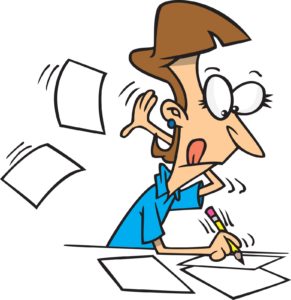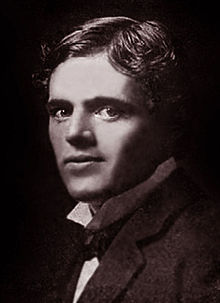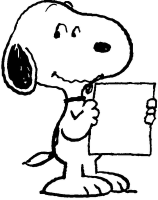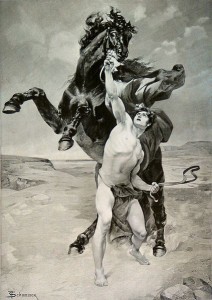by James Scott Bell
@jamesscottbell
So I was sitting around the other day with a bout of procrastination when I had a thought (I  try to have at least one thought per day). I find, as a writer, I am usually in one of five modes: Flow, Go, Slow, No and Pro. I thought of adding another one for residents of New York and New Jersey – Yo! – but decided five was enough
try to have at least one thought per day). I find, as a writer, I am usually in one of five modes: Flow, Go, Slow, No and Pro. I thought of adding another one for residents of New York and New Jersey – Yo! – but decided five was enough
Flow
Flow is a state of hyper focus, of total immersion in one’s creative work. In this mode you experience a mix of forgetfulness, play, joy, and “time quickening.” An hour feels like five minutes. Difficult tasks seem to melt before you. You are “in the zone.”
Jack London wrote a lot about flow, in all parts of life, but especially in the life of the writer. In The Call of the Wild he compares it to the elemental ecstasy of the animal in full beast mode:
There is an ecstasy that marks the summit of life, and beyond which life cannot rise. And such is the paradox of living, this ecstasy comes when one is most alive, and it comes as a complete forgetfulness that one is alive. This ecstasy, this forgetfulness of living, comes to the artist, caught up and out of himself in a sheet of flame; it comes to the soldier, war-mad on a stricken field and refusing quarter; and it came to Buck, leading the pack, sounding the old wolf-cry, straining after the food that was alive and that fled swiftly before him through the moonlight.
There you go, writer. Hunt that book!
So how do you get into the zone when you write? I’ve found it more or less sneaks up on you, that you can’t force it. But there is a way to make it more recurrent: Know your craft!
Mihály Csíkszentmihályi (I’ll help you out. It’s pronounced MEE-high Chick-SENT-mee-high), in his seminal work Flow: The Psychology of Optimal Experience, stressed that flow most often occurs when the challenge of a task is met with an equal or greater skill level. When you know what you’re doing, and how to pull something off, you are more likely to experience flow. I love the speech in The Hustler with Paul Newman, where he describes to his girl what it’s like to play great pool:
EDDIE: Like, you know, anything can be great. Brick laying can be great, if a guy knows. If he knows what he’s doing and why and if he can make it come off.
When I’m goin’, I mean when I’m really goin’, I feel like a jockey must feel. He’s sitting on his horse, he’s got all that speed and that power underneath him, he’s coming into the stretch, the pressure’s on him, and he knows. He just feels when to let it go and how much. ‘Cause he’s got everything working for him – timing, touch. It’s a great feeling, boy, it’s a really great feeling when you’re right and you know you’re right.
It’s like all of a sudden I got oil in my arm. The pool cue’s part of me … You feel the roll of those balls and you don’t have to look, you just know. You make shots nobody’s ever made before. I can play that game the way nobody’s ever played it before.
SARAH: You’re not a loser, Eddie, you’re a winner. Some men never get to feel that way about anything.
Study your craft and write with abandon and you will experience those times when you just know. It’s the greatest mode of the writing life.
Go
The next best thing to being lost in flow is being able to write at a good pace anyway. Get the words down. Turn off the inner editor and just go.
One way to do that is the writing sprint. You set yourself a goal of, say, 250 words. You make a little plan for what you’re going to write. It might be some action, some description, some dialogue, whatever. You think about it, then write without stopping.
You can set a timer for this, or use something like Dr. Wicked’s Write or Die.
When you get to the end of your sprint you might very well find that you’re in flow. So keep going.
Otherwise, take a short break and then do another sprint.
Slow
We all know there are times when writing is a slog. There are many reasons this may be. It could be physical—you’re just tired. Or it could be a part of your manuscript you’re unclear or unexcited about.
If it’s physical, take a power nap. I recommend them! Every day, sometime between one and three o’clock, I try to nod off for fifteen or twenty minutes. You can train your body to do that. I can put my feet up on my desk and lean back in my chair, or hit the sofa, and I’m off to dreamland in a minute or two.
Another idea when it’s slow going is to take a brisk walk in the sunshine. If you live in Buffalo and it’s December, do some jumping jacks in the living room … and then don’t live in Buffalo in December anymore.
If slowness is caused by being unclear or unexcited about your WIP, try this:
Skip ahead from wherever you are and write a fresh new scene. Before you start, let the scene play in your mind and tell your imagination to come up with one surprising thing. Out of the blue. Wild. Your character could do something you never thought he would. Or another character might pop in (Chandler’s famous “guy with a gun” perhaps?). Or create some crazy lines of dialogue.
At the very least, this exercise will produce new plot possibilities and more layers of character life. And it’s fun.
No
And then there are some days when you simply do not want to write, when it almost feels like you can’t type. Your fingers rest on the keys but refuse to move.
There may be several reasons for this.
It could be that familiarity has bred contempt. You just can’t stand looking at your project anymore. Perhaps you’ve hit a wall in your story and don’t know whether to jump over, tunnel under, blow it up, or go back the way you came.
Or it could be completely unrelated to your writing, such as a life crisis that saps your mental energy.
So the first thing to do is figure out why your brain is saying No. Journaling about it helps. Write to yourself in a free-form way, asking questions, letting your thoughts pour out on the page.
But don’t beat yourself up if you have to take a break. I am all for busting through barriers, but there have been times when I’ve given myself permission to just say No. I even build a day into my week for a “writing Sabbath.” I try not to write anything on Sunday. This lets my mind rest and usually results in new ideas and fresh energy on Monday.
Pro
The pro writer writes to a quota.
Now, I know some writers think a quota stifles creativity by putting “pressure” on delicate artist sensibilities. I say hooey. It’s the exact opposite. Having a quota actually pulls you forward so flow and ideas and productivity can happen.
My standard advice: find the number of words you can comfortably produce in a normal week. Then up that by10%. Make that your weekly goal and divide it up among your days and according to your schedule. Keep track of how you do each day.
A pro also keeps up on what’s happening in the publishing world – both traditional and indie – in order to make wise career choices. Keep abreast of what’s being offered in publishing contracts (Kris Rusch is currently running a great series on this subject. Start here.) Subscribe to industry blogs like Jane Friedman and follow observers like @Porter_Anderson. Put together your own list of go-to resources … and then go to them.
And then there’s marketing, which these days falls mainly on the author’s shoulders, even in traditional publishing. So we all have to give it attention, but here’s my thing: follow the 80/20 rule. Eighty percent of your writing life should be devoted to the writing itself, the craft, the production. Twenty percent to the business and marketing side. Why? Because I’ve seen some fabulous marketers zigging and zagging all over the place, but with stinky books. That doesn’t build repeat business.
And repeat business is the name of this game for a pro. You get that when you write great books. So make that your primary focus.
For if you can deftly handle Flow, Go, Slow, No and Pro, you will greatly increase your chances of making something else – Dough.
Y’know?
So …
…what mode have you been in lately?






